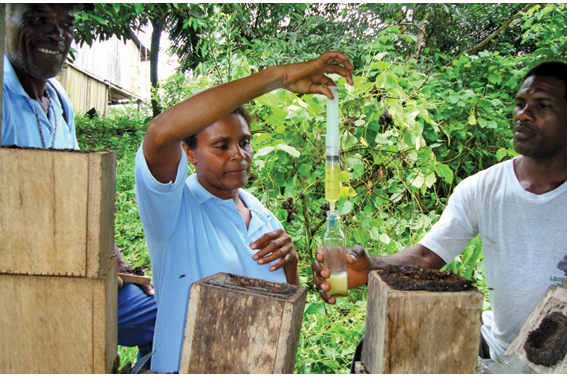

Honey

160 families of the indigenous and Afro-Ecuadorian Eperaara and Awa communities of Ecuador’s northern coast are working to protect the Melipona bee, a species that is threatened with extinction due to logging in the forests which are home to the wildflowers on which it feeds.
The families, who have identified the bees’ biological, cultural, economic and medicinal value, use a traditional collection system that produces 30 liters of honey a month. Beekeeping has employed many women of the community and has strengthened local trade associations.
"It has empowered families economically, since this activity is like having a piggy bank,” says beekeeper Fernando Arroyo. “The moment that the family needs to buy school supplies or medicines, they simply harvest honey. We know we can sell it, because honey has been consumed since our ancestors’ time. We are very successful and the key is to maintain the forest, where the bees feed.”